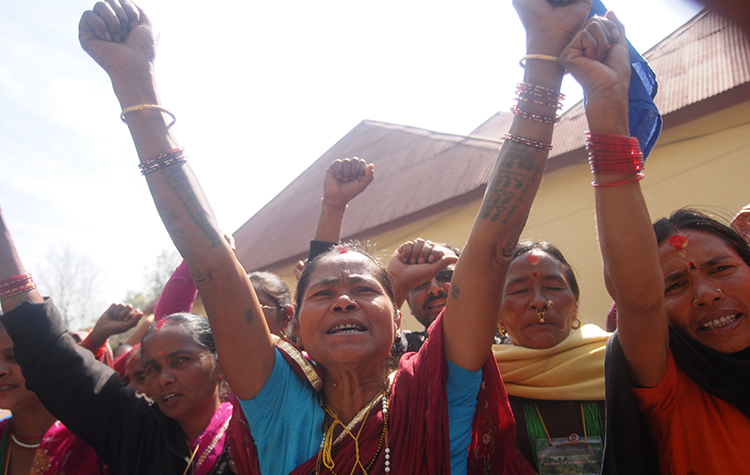Today, 29 November 2016, is the 10th International Women Human Rights Defenders (WHRDs) Day. As the world celebrates this day, the Asian Forum for Human Rights and Development (FORUM-ASIA) calls once again for the continued need of strengthening the protection of all WHRDs, as well as Lesbian, Gay, Bisexual, Transgender and Intersex (LGBTI) rights defenders in Asia. FORUM-ASIA would like to take this opportunity to send a message of encouragement and solidarity to all women and LGBTI activists who are engaged in various efforts to promote human rights for all.
In November 2016, human rights defenders from 24 countries in Asia and beyond attended the 7th Asian Regional Human Rights Defenders Forum in Sri Lanka. During the Forum, there was a specific session focused on common challenges faced by women and LGBTI activists in Asia. The session provided an opportunity to brainstorm joint-strategies to address common challenges.
Challenges
It is very common that WHRDs are targeted because of their work as human rights defenders. They face additional risks because of their gender or gender-identity, such as sexual assault and social ostracisation. Family members are often threatened or even attacked in order to push WHRDs to stop their activism.
Most women activists defending land, natural resources and indigenous people’s rights are considered at high risk. They are working at the grassroots level and within communities, which are often located in remote areas. They are, thus, away from international visibility or attention, which would otherwise provide them with some protection.
Both state and non-state actors are responsible for violations and discriminations against WHRDs and LGBTI rights defenders. These violations include: arrests; physical attacks; everyday harassment; online intimidation; hate campaigns; judicial harassment; and even killings. The arrest and death threats against Maria Chin Abdullah, the chair of Bersih 2.0, is a clear example of abuses from both state and non-state actors. Maria and her family received death threats via WhatsApp and Facebook. In addition, she was arrested by the police for her calls for free and fair elections in Malaysia.
Participants of the Forum in Sri Lanka identified structural and systematic violations against WHRDs stemming from fundamentalism, militarisation and globalisation, and stressed the urgent need for addressing the consequences of these root-causes and trends. For instance, extremist Buddhism and nationalism are among the main factors that play against women activists and LGBTI activists in Burma/Myanmar. Socio-economic inequality, religious extremism, armed conflict and shrinking democratic space are other factors that exacerbate vulnerability to violence.
Furthermore, WHRDs and LGBTI activists are often not recognized for their work as human rights defenders. At times other human rights defenders’ networks are reluctant to engage with them because they are afraid of the consequences of this collaboration within their constituencies. This makes collaborating with other human rights defender networks still a challenge.
Joint strategies and recommendations
There is a general consensus among WHRDs and LGBTI rights defenders on the importance of connecting with other human rights defenders’ networks. LGBTs and WHRDs need the support of fellow human rights defenders and their networks, as well as other key allies, particularly youth networks, labour networks, community organisations and other civil society organisations. As a participant underscored, ‘global justice is needed for WHRDs and LGBTI rights defenders, and this is only possible when different stakeholders are involved’.
Participants also shared the importance of raising awareness on women and LGBTI rights among the people at large, and promote the work carried out by WHRDs and LGBTI rights defenders. Media is fundamental to enhance recognition, legitimacy and visibility of their issues and work. Equally crucial is to firm up solidarity among various networks defending human rights in all contexts.
Let us develop protection and security mechanisms based on gender-sensitivity in order to tackle gender-specific threats and harassment, which is a key obstacle for WHRDs and LGBTI rights defenders. On this day, let us commit ourselves to doing all that is necessary to end discrimination against and inequality of WHRDs and LGBTI rights defenders.



